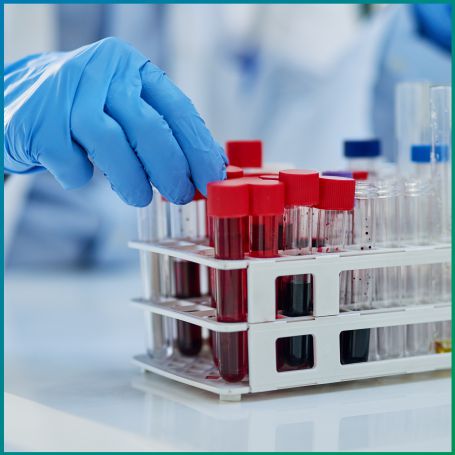
Cyclosporine is an immunosuppressive agent that works by inhibiting the activity of T-cells, which play a crucial role in the body’s immune response.


By suppressing the immune system, cyclosporine helps prevent the body from rejecting transplanted organs and alleviates the symptoms of autoimmune diseases such as rheumatoid arthritis and psoriasis. However, maintaining appropriate cyclosporine blood levels is vital, as both under-treatment and over-treatment can lead to significant complications.
1] Time of Blood Draw: Cyclosporine levels fluctuate throughout the dosing cycle. Trough levels, measured just before the next dose, provide a reliable indicator of steady-state levels.
2] Drug Interactions: Other medications can affect cyclosporine metabolism, leading to increased or decreased blood levels. For example, medications such as ketoconazole or erythromycin can raise cyclosporine blood levels, while others, like phenytoin or rifampin, can lower them.
3] Patient Factors: Age, weight, liver and kidney function, and genetic factors can influence how a person metabolizes cyclosporine. Therefore, each patient's response to the drug may vary.
4] Diet and Lifestyle: Certain dietary habits, including high-fat meals, can affect cyclosporine absorption and blood levels. Alcohol consumption may also interact with cyclosporine metabolism.
Normal cyclosporine levels can vary based on several factors, including the specific condition being treated, the time of blood draw relative to medication administration, and the individual patient's metabolism. Generally, therapeutic ranges are established to guide treatment:
1] For Transplant Recipients: Normal cyclosporine blood levels typically range from 100 to 400 ng/mL (nanograms per milliliter) within the first few weeks post-transplant. Levels may need to be adjusted based on the specific organ transplanted and individual response.
2] For Autoimmune Disorders: The therapeutic range may be lower, often between 50 to 250 ng/mL, depending on the severity of the condition and patient response to treatment.
3] High Levels (Toxicity): Elevated cyclosporine levels may lead to toxicity, which can manifest as kidney damage, hypertension, tremors, and increased risk of infections. Chronic toxicity can result in significant organ damage, particularly to the kidneys.
4] Low Levels (Subtherapeutic): Conversely, low cyclosporine levels can increase the risk of organ rejection or exacerbation of autoimmune conditions. Inadequate immunosuppression may lead to serious complications and negatively impact patient outcomes.
At Diagnopein, we offer comprehensive, accurate, and timely diagnostic services, including the Cyclosporine Level test pune. With our NABL-accredited labs, cutting-edge technology, and skilled technicians, you can be assured of reliable results every time. Get your results quickly, especially when time is crucial in detecting severe infections.
Competitive pricing without compromising on quality. Our team of experienced professionals ensures the test is conducted smoothly with minimal discomfort. We provide not just the Cyclosporine Level test results but insights into your health condition, helping you and your doctor make informed decisions about treatment. For more information call us at +91 9204 108108.
Generally, no special preparation is needed. However, it’s important to inform your healthcare provider about any other medications or supplements you are taking.
Most patients experience minimal discomfort during the blood draw, similar to a typical blood test. Local anesthesia is not usually required.
A] High Levels (Toxicity): Can lead to kidney damage, hypertension, tremors, and increased infection risk. <br>B] Low Levels (Subtherapeutic): Increase the risk of organ rejection or exacerbation of autoimmune conditions.
A] Timing of the blood draw relative to medication doses.<br> B] Drug interactions with other medications.<br> C] Patient factors such as age, weight, and liver or kidney function.<br> D] Dietary habits, including high-fat meals and alcohol consumption.